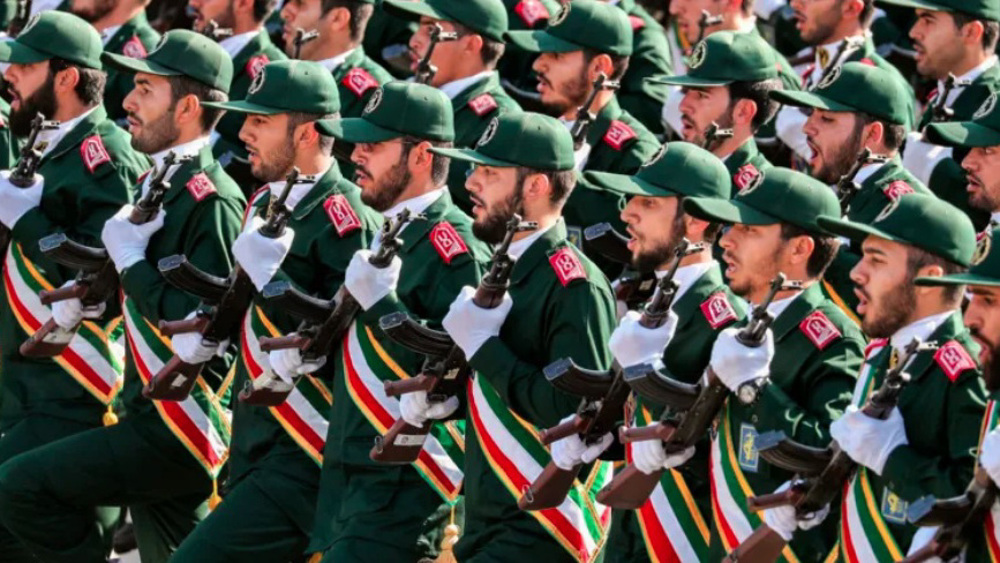Bahrainis should directly confront regime: Analyst
Press TV has conducted an interview with Colin Cavell, a former lecturer at the University of Bahrain, to discuss the Bahraini regime crackdown on political dissidents.
A rough transcription of the interview appears below.
Press TV: As we have just mentioned, 29 arrests, however, 47 anti-government rallies just goes to show the resilience of the people of Bahrain now, doesn’t it?
Cavell: There is resilience but as I indicated after the arrest and the revocation of the citizenship of Sheikh Issa Qassim, there is left for the opposition... they’ve already waged a war of ideas and established that the Al Khalifah regime is an unwanted dictatorship, that the people are ready for democracy, to run their own government, but they need to lay out a plan for a new government if they want to push this rebellion further. They need to have something that the population can rally around.
Otherwise, I think the Al khalifahs... they’re trying to stamp out the opposition and they’re doing a thorough job. Yes, there’s still opposition going on but without a game plan for the opposition to move forward, it’s going to be problematic to galvanize large numbers of people to continue this movement.
Press TV: Right, speaking of that, Mr. Cavell, over the years since the uprising began in 2011, the figureheads of this uprising are either in jail or exiled and some of them have even been killed. So, what options are left there for the people of Bahrain to continue?
Cavell: Well, this is a task of the leadership within the opposition.
So far, the pursuit of nonviolent, peaceful strategy... they have held out the olive branch to the existing Al Khalifah regime and it has been repeatedly rejected and they have been snubbed.
So, the leadership needs to reassess their tactics, and I think part and parcel of that is to get beyond dealing in a friendly manner with this regime. They need something to galvanize the population around and that has to be some written document laying out just what the alternative vision of Bahraini society is going to be, whether that’s a new constitution, whether it is a protocol of principles that they’re going to act upon, something that can galvanize the population for the next stage, which is they have to directly confront this regime because now it’s a test of wills, it’s a test of what powers both sides can muster and the Al Khalifahs are already showing that they held the power and that they’re going to silence the opposition, put the leaders in jail, torture or kill or revoke the citizenship of anyone.
And so that has to be countered by the opposition. If it goes un-countered, the regime will believe that they have won.
Press TV: Right, now, when you speak of powers to be mustered, Mr. Cavell, there is one power that is clearly very lacking at least when it comes to this uprising in Bahrain and that is of the mass media. There is a blackout when it comes to the current situation on the ground in Bahrain. As we have just mentioned, eight Bahrainis were sentenced to a total of 32 years in prison; however, there is not a lot of outrage in the mainstream media as we’re seeing. If that power of the mainstream media could be harnessed, do you think that the Al Khalifah regime would be under more pressure to bring about some form of change?
Cavell: Absolutely. Any revolution... the first thing they do is go for the means of information distribution, to control that. Lacking that... it’s hard to get your message around.
The Al Khalifahs are shutting down reporting on [what] the opposition is doing. The only thing that’s been reported in the Gulf Daily News these days is the 46 years in office Prime Minister Sheikh Salman telling people to inform on anybody who is creating trouble and that Bahrain must maintain its unity. That’s the only reference I can get in the Bahraini media.
US hosts over 50 states for talks on mineral ‘trade bloc’ against China
US-Russia nuclear limits end as New START treaty expires
Merz’s ‘political naivety’ has cost Germany its role in Iran talks: Araghchi
Israel cancels Rafah evacuation for Gaza patients amid renewed massacres
Iran’s deterrence power strengthened after ballistic missile upgrades: Top general
Hind Rajab Foundation files war crimes complaint in US against Israeli-American trooper
VIDEO | Press TV's news headlines
VIDEO | Coordination Framework gives Kurdish parties 48-hour deadline to choose presidential nominee









 This makes it easy to access the Press TV website
This makes it easy to access the Press TV website